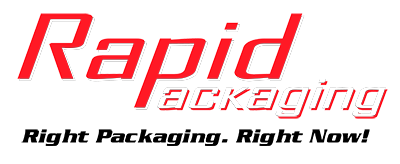Some industries have been slow to adapt to changing technology. The internet has changed the way we live, work, and perhaps most of all, changed the way we buy things. The FIBC industry isn’t always the fastest to adapt to changes, but it is becoming increasingly common in the industry to get quotes online (for example, the National Bulk Bag ‘Get Quote’ form here).
Online quotes are easy to request, fast to submit, and increase responses by eliminating time spent having several phone conversations. Simply fill out a form, hit submit, and get an email with a quote in your inbox in less than 24-hours. However, without an expert on the other end of a phone line helping you it can be difficult to know what you need. If you don’t know what you need, how do you get an accurate quote? Let’s examine what you should know before hitting submit on a RFQ (request for quote) form.
Know your product and application
The first thing to consider is the product you’ll be packing and the application in which you’ll be using the bags. Knowing this will allow you to get a much more accurate quote in terms of the bags that are available to you. Distributors often have many bags in stock; knowing your product and application can help distributors determine what bags would be best for you.
Know your facility
There are two things to know about your facility that can have a big impact on what bag construction type is best for you:
- Know how the bags are filled and discharged
- Knowing how the bags are filled and discharged will determine what kind of top and bottom construction your bag requires or if you will need a custom designed bag. For example, some bag filling equipment requires a spout top to prevent contamination and/or spilling. (check out this article on filling/discharge equipment)
- Know how the bags are transported
- Knowing how the FIBCs are moved around within your facility is also crucial. This will let you know what kind of straps you’ll need. Some are designed for use with forklifts, and some are designed for use with other equipment. (for more information on straps and how they impact bag construction, check out this article)
Know your industry
Knowing your industry is particularly relevant if you’re in the food or pharmaceutical industries or if you use FIBCs to move/store/transport hazardous materials. Often, these industries are held to higher standards when it comes to the handling of their products. This generally requires special FIBCs that meet the high standards set by industry regulations.
Be sure to note if your company falls into any of these categories on your request form. This will allow the bag distributor to give you a more accurate quote as food-grade, pharma-grade and/or UN certified FIBCs generally cost more.
To learn more about specialty bulk bags, check out these posts:
Know your quantity (or… just ballpark it)
Want to save time? Know your quantity. Knowing your quantity can save significant amounts of lead time. Knowing how much you’ll purchase over the year can help even more. If your distributor is quality, they’ll have warehousing space around the US where they can stock your particular FIBC. If they have an idea of your monthly/annual usage, they can make sure they always have your bag readily available.
Tech specs are great, but not required
More information always helps get you a more accurate quote. If you have any spec sheets or data sheets regarding the specific FIBC you’re looking for, often times you can upload these on a quote page. This will allow your distributor to match an in-stock product for quick delivery or diagram what a custom bag for your product and application may look like. Either way, the more you know, the more accurate your quote will be.

Thanks for reading!
Thanks for reading about the most common types of flexible intermediate bulk container lift loops!
Safety and reliability are our top priorities. Each bag that we sell has a safe working load (SWL). To make sure the product you’re packing will not exceed the SWL of the bag you’re interested in, you’ll need to know the bulk density of the product you’re packing as well as the cubic foot capacity of the bag.
Click the button below to download our Product Weight Guide and FIBC Volume Calculator to help you determine how much weight a specific bag will hold.






